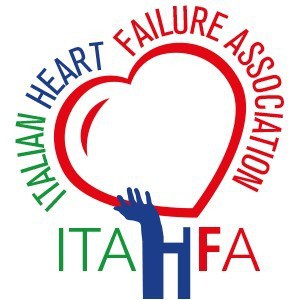Video
ESC 23: PUSH-AHF: Natriuresis-Guided Therapy in Acute Heart Failure
Published: 28 Aug 2023
-
Views:
 643
643
-
Likes:
 2
2
Average (ratings)
No ratings
ESC 2023 — Dr Jozine Ter Maaten (University Medical Centre Groningen, NL) joins us to outline the findings from the PUSH-AHF Study (NCT04606927).
PUSH-AHF (University Medical Center Groningen) aimed to assess the effect of natriuresis-guided therapy in patients with acute heart failure to improve diagnostic response, decongestion and clinical outcomes. 310 patients with a primary diagnosis of acute heart failure requiring intravenous loop diuretics were enrolled in this randomised, controlled, open-label study.
Results suggested that patients who were treated with natriuresis-guided therapy had significantly greater 24-hour natriuresis without impacting all-cause mortality or heart failure rehospitalisation as compared to standard of care.
Questions:
- What is known about diuretic targets? What is the existing evidence?
- Can you summarise the intervention?
- What is the study design and patient population?
- What are the findings presented at ESC?
- What are your take-home messages for practice?
- What are the next steps?
Recorded on-site at ESC Congress 2023, Amsterdam.
For more content from ESC Congress 2023 head to the Hot Line & Late-breaking Science Video Collection.
Editors: Mirjam Boros and Jordan Rance
Video Specialists: Dan Brent, Tom Green, Mike Knight, Oliver Miles
"I'm Jozine Ter Maaten and I'm a cardiologist at the University Medical Centre Groningen in the Netherlands, and I'm a cardiologist that's very interested in heart failure but also the kidneys. And that's why I'm presenting a study today that's called the PUSH AHF Study.
Acute HF: What is Known
So the treatment of acute heart failure has remained unchanged for the last 50 years. We treat these patients with intravenous loop diuretics and it's fascinating that almost half of these patients do not respond adequately to this only available treatment option. And we also know that this treatment does not result in better outcomes. So what we've been doing nowadays and what our guidelines recommend is just administering intravenous loop diuretics and check, whether your patient is losing weight or is losing fluid. But this all takes time, so we need to do better in order to be able to treat our patients more personalised, in my opinion.
Intervention Summary
So what we actually did is that we studied natriuresis guided therapy in patients with acute heart failure. And why did we chose natural guided therapy? It's because when you administer loop diuretics, patients not only start losing fluid, but they actually pee out sodium. So we thought it might be a more sensitive and better marker to assess urinary sodium to see if patients respond adequately to our only available treatment option. And we thought maybe we can also use this urinary sodium to guide the diuretic therapy. So if patients do not respond well, we adjust the diuretic therapy and increase dose or even start combination diuretic therapy. So the intervention we studied was natriuresis guided therapy and we investigated this compared with standard of care.
Study Design and Patient Population
And so we randomised 310 patients with acute heart failure and those were patients presenting to the emergency department with signs and symptoms of heart failure and the requirement of intravenous loop diuretic dose to treat their congestion. We left the inclusion and exclusion criteria intentionally very broad to enrol a generalizable acute heart failure all-comer population. So when patients presented to the emergency department, they were randomised to natriuresis guided therapy and standard of care.
Key Findings
Yeah, so our study was powered for dual primary endpoints of 24 hours natriuresis to show that if we actually treat these patients based on their urinary sodium, do they also pee out more sodium? So, 24 hours natriuresis and the other part of the dual primary endpoint was a combined endpoint of all cost mortality and adjudicated heart failure rehospitalisation. And we did indeed see that patients that were treated with natriuresis guided therapy had significantly more 24 hours natriuresis compared with standard of care. We unfortunately did not see a difference in the combined endpoint of all cross-mortality and adjudicated heart failure rehabilitation, but we did observe a remarkable difference in in-hospital death between the two groups where there were only two deaths in a natriuresis guided group versus 14 deaths in a standard-of-care group. This was, however, not a prespecified outcome, I think what our study shows.
Take-Home Messages
So the results of the PUSH AHF, in my opinion, show that we can use urinary sodium as a personalised treatment approach for patient acute heart failure. By using natriuresis-guided therapy, you identify patients that do not respond adequately, and we show that if you increase doses or administer additional dose or even initiate combination diuretic therapy, these patients indeed pee out more sodium, but they also have significantly more diuresis in the first days of hospitalisation. So I think the conclusions of the PUSH AHF are is that we now have a first evidence for personalised treatment therapy and acute heart failure. And we also show that this is safe. So this therapy did not result in more electrolyte imbalances, more renal dysfunction, and also did not result in adverse long-term outcomes.
Next Steps
Yeah, so the next steps are that we've already planned a combined analysis with an ongoing Natriuresis guided therapy study in the United States. So hopefully that will increase our power to also show a significant effect on long-term outcomes. And I think we should now focus on implementation of Natriuresis guided therapy in clinics because our most recent ESC failure guidelines already recommend using urinary sodium to adjust the diuretic therapy in patients with acute heart failure. And the PUSH AHF trial now provides the first randomised controlled evidence to support this recommendation in the guidelines.”








Comments